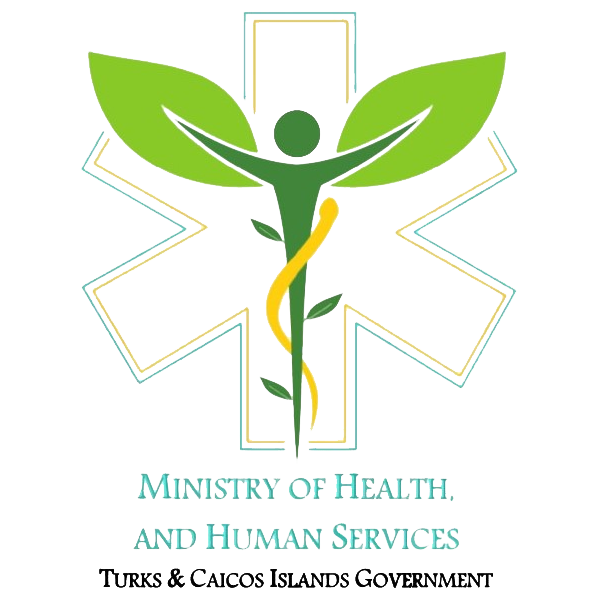Introduction
The Ministry of Health and Human Services (MoH) and by extension the Turks and Caicos Islands Government (TCIG) has adjusted public health measures in response to the ongoing COVID-19 pandemic. Since March 2020, the TCI has made significant gains towards herd immunity; there have been multiple waves of COVID-19 of varying magnitudes (attributed to multiple strains of COVID-19), coupled by an impressive vaccination coverage rate.
The overarching goal is to control COVID-19 by reducing transmission of the virus and preventing associated illness and death.
- Core public health measures that break the chains of transmission include:
- Identification, isolation, testing, and clinical care for all cases,
- Tracing of contacts, and
- Encouraging physical distancing of at least 2 meters (6 feet) combined with frequent hand hygiene and respiratory etiquette.
Public health measures, awareness campaigns, testing, contact tracing and access to vaccines have been initiatives led by the TCIG. With over two (2) years of leading this charge, the TCIG has now devolved certain functions to the individual.
Scope:
This document provides updated guidance for individuals that test positive for COVID-19. The guidance is based on evidence on controlling the spread of SARS-CoV-2, the virus that causes COVID-19, and scientific knowledge of the virus.
Transmission:
Epidemiology and virology studies suggest that transmission occurs from both symptomatic and asymptomatic persons, to others by close contact through respiratory droplets, direct physical contact, or through contact with contaminated objects and surfaces. Shedding of SARS-CoV-2 is highest in the upper respiratory tract (URT) (nose and throat) early in the course of the disease up to 2-3 days prior the onset of symptoms, and during the first 5-7 days of symptoms.
Symptoms of COVID-19
The following are the most common symptoms of COVID-19:
- Fever or chills
- Cough
- Shortness of breath or difficulty breathing
- Fatigue
- Muscle or body aches
- Headache
- New loss of taste or smell
- Sore throat
- Congestion or runny nose
- Nausea or vomiting
- Diarrhea
Incubation Period for COVID-19
The incubation period for COVID-19, (the time between exposure to the virus and symptom onset), is, on average, 5–6 days, but can be up to 14 days. During this period, also known as the “pre-symptomatic” period, some infected persons can be contagious, from 1–3 days before symptom onset. It is important to recognize that pre-symptomatic transmission still requires the virus to be spread via infectious droplets or by direct or indirect contact with bodily fluids from an infected person. An asymptomatic case is a person infected with SARS-CoV-2 who does not develop symptoms.
Precautions
· Maintain physical distance of at least 6 feet from others
- Wear a mask/ face covering over both the nose and mouth when around others (especially indoor settings)
- Frequent hand hygiene: hand washing with soap and water or use an alcohol based hand sanitizer
- Routine cleaning of regularly touched surfaces
- COVID-19 Vaccination (once eligible)
Testing
- Any person who develops symptoms consistent with COVID-19 should get tested using an approved method.
- The Ministry of Health currently recommends testing using Polymerase Chain Reaction (PCR) or an approved Antigen/Lateral Flow Device.
Self-isolation
Individuals that test positive for COVID-19 are required to self-isolate as outlined below. The time period is to be calculated from date of sample collection or onset of symptoms.
An isolation period of at least 5 days is recommended*. It is recommended that household contacts of these individuals monitor themselves closely for symptoms and use all available precautions (outlined above).
*Persons with persistent symptoms or underlying conditions are at an increased risk of transmitting the virus and may be recommended to extend their isolation period. This should be evaluated and determined by the treating physician on a case-by-case basis. These individuals are strongly encouraged to maintain a face mask; especially when around others.
What to do if you have tested positive for COVID-19?:
- Self-isolate and use all precautionary guidance outlined above as recommended.
- Visitors who test positive should follow the guidance above, asymptomatic persons within the travel group testing negative; repatriate as planned.
- Medical Certificates are documents issued by a registered and licensed medical practitioner. These should be requested if needed for use with insurance or leave from work/school etc. A “fit-to-work/recovery” certificate may be issued by the same facility/provider on completion of the isolation period (if required).
- Please note, for persons travelling overseas, each destination may have specific requirements for entry including the required isolation period to be completed (in the event of testing positive), types of tests accepted or required proof of recovery. It is advised that persons verify updated requirements of their respective destination.
- Persons testing positive at a non-medical facility, who require a medical certificate, should make contact with the Public Health Team as indicated below in a timely manner (proof of vaccination and test result should be available for verification):
- Providenciales: National Stadium, Venetian Road, Monday-Friday 9am-2pm (except Public Holidays)
- North Caicos
- Kew: 342-6860
- Bottle Creek: 347-2126
- Middle Caicos: 242-2522
- South Caicos: 345-7360
- Grand Turk: 347-5657
- Salt Cay: 245-9409
Further guidance can be obtained through the COVID-19 Hotline at: 333-0911 or 232-9444
As the COVID-19 situation continues to develop, the Ministry of Health will update these guidelines based on the best available evidence.

